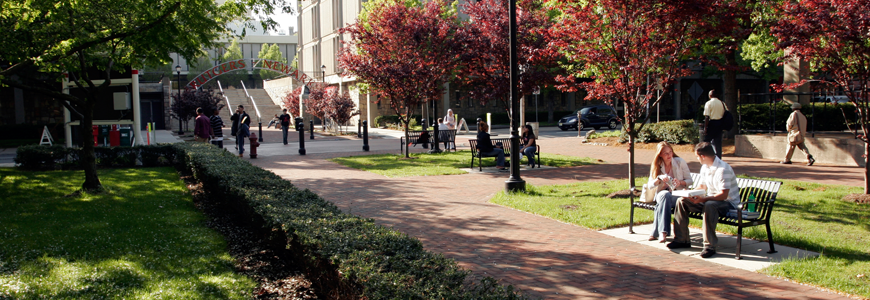History and Purpose

“The mission of the School of Criminal Justice is to study the individual and social dynamics of crime and the criminal legal system through multidisciplinary and collaborative approaches, and to use this understanding to achieve equitable justice practices that promote public safety.”
The School of Criminal Justice at Rutgers University-Newark was founded in 1974 by an act of the New Jersey Legislature—the only school in America with this kind of legal charter. Its purposes have always been to (1) produce scholarship of the highest quality on crime and justice (2) provide state and local justice agencies with crucial evidence and consultation about the policy and practice of criminal justice, and (3) produce graduates who take their places as productive and respected scholars in the field.
We are, students and faculty alike, scientists who are driven by a passionate concern about problems of crime, public security, and social justice. Our specific interests are as diverse as our backgrounds, our training, and the local environment within which we work. We bring a wide array of rigorous methods and sharply honed theoretical perspectives to tackle important problems that affect peoples’ lives. This leads us to a deep engagement with people, policy-making, citizens, and professional and lay groups, both here and abroad. Our single aim is to have an impact: we want to change the way people think about crime and justice as well as the way we do the work of justice. Our job is to be at the leading edge of thought about and intervention into the justice world.
Research Excellence
- To build and maintain a vital research environment
- To produce high quality, original, and rigorous research that is at the cutting edge of the field
- To enhance the reach and impact of faculty research and RSCJ Institutes, to ensure their significant role in addressing pressing issues in the field
- To attract external support for high-quality research
Policy Relevance
- To promote evidence-based inquiry and policy
- To contribute to the quality of justice related policy at the local, state, national, and global level
- To ensure graduates are thoroughly trained and prepared to make significant contributions in their professional or academic careers
- To establish and support strategic research partnerships with justice-related and non-governmental organizations
Educational Excellence and Student Success
- To enable students to be successful in their studies by maintaining a supportive learning environment
- To prepare students to excel in academic or professional careers in fields relevant to dealing with crime and justice
- To attract and support highly qualified faculty and instructional staff
- To maintain currency and relevance of the curriculum

